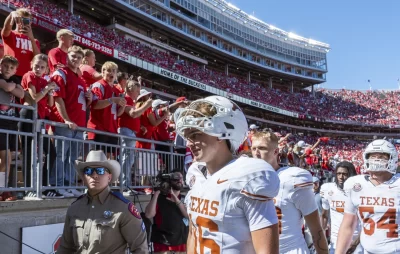
WASHINGTON — President Joe Biden and his predecessor, Donald Trump, romped through more than a dozen states on Super Tuesday, all but cementing a November rematch and pushing the former president’s last major rival, Nikki Haley, out of the Republican race.
Their victories from coast to coast, including the delegate-rich states of California and Texas, left little doubt about the trajectory of the race. Haley won Vermont, denying Trump a full sweep, but the former president carried other states that might have been favorable to her such as Virginia, Massachusetts and Maine, which have large swaths of moderate voters like those who have backed her in previous primaries.
Hours after the last polls closed in Alaska, Haley scheduled a 10 a.m. ET speech in her home state of South Carolina to announce she was suspending her campaign. Three people with direct knowledge who spoke on the condition of anonymity because they weren’t authorized to speak publicly confirmed Haley’s decision ahead of her announcement.
The only contest Biden lost Tuesday was the Democratic caucus in American Samoa, a tiny U.S. territory in the South Pacific Ocean. Biden was defeated by previously unknown candidate Jason Palmer, 51 votes to 40.
Not enough states will have voted until later this month for Trump or Biden to formally become their parties’ presumptive nominees. But the primary’s biggest day made their rematch a near-certainty. Both the 81-year-old Biden and the 77-year-old Trump continue to dominate their parties despite facing questions about age and neither having broad popularity across the general electorate.
Haley watched the election results in private. Her campaign said in a statement that the results reflected there were many Republicans “who are expressing deep concerns about Donald Trump.”
“Unity is not achieved by simply claiming ‘we’re united,’” spokesperson Olivia Perez-Cubas said.
Trump’s Mar-a-Lago estate, meanwhile, was packed for a victory party. Among those attending were staff and supporters, including the rapper Forgiato Blow and former North Carolina Rep. Madison Cawthorn. The crowd erupted as Fox News, playing on screens around the ballroom, announced that the former president had won North Carolina’s GOP primary.
“They call it Super Tuesday for a reason,” Trump told a raucous crowd. He went on to attack Biden over the U.S.-Mexico border and the U.S. withdrawal from Afghanistan. After beginning the night with victories in Virginia and North Carolina, he wrapped Super Tuesday by winning contests in Alaska and Utah.
Biden didn’t give a speech but instead issued a statement warning that Tuesday’s results had left Americans with a clear choice and touting his own accomplishments after beating Trump.
“If Donald Trump returns to the White House, all of this progress is at risk,” Biden said. “He is driven by grievance and grift, focused on his own revenge and retribution, not the American people.”
While much of the focus was on the presidential race, there were also important down-ballot contests. The governor’s race took shape in North Carolina, where Republican Lt. Gov. Mark Robinson and Democratic Attorney General Josh Stein will face off in a state that both parties are fiercely contesting ahead of November.
In California, Democratic Rep. Adam Schiff and Republican Steve Garvey, a former Los Angeles Dodgers baseball player, advanced to the general election race to fill the Senate seat long held by Dianne Feinstein.
Despite Biden’s and Trump’s domination of their parties, polls make it clear that the broader electorate does not want this year’s general election to be identical to the 2020 race. A new AP-NORC Center for Public Affairs Research poll finds a majority of Americans don’t think either Biden or Trump has the necessary mental acuity for the job.
“Both of them failed, in my opinion, to unify this country,” said Brian Hadley, 66, of Raleigh, North Carolina.
The final days before Tuesday demonstrated the unique nature of this year’s campaign. Rather than barnstorming the states holding primaries, Biden and Trump held rival events last week along the U.S.-Mexico border, each seeking to gain an advantage in the increasingly fraught immigration debate.




